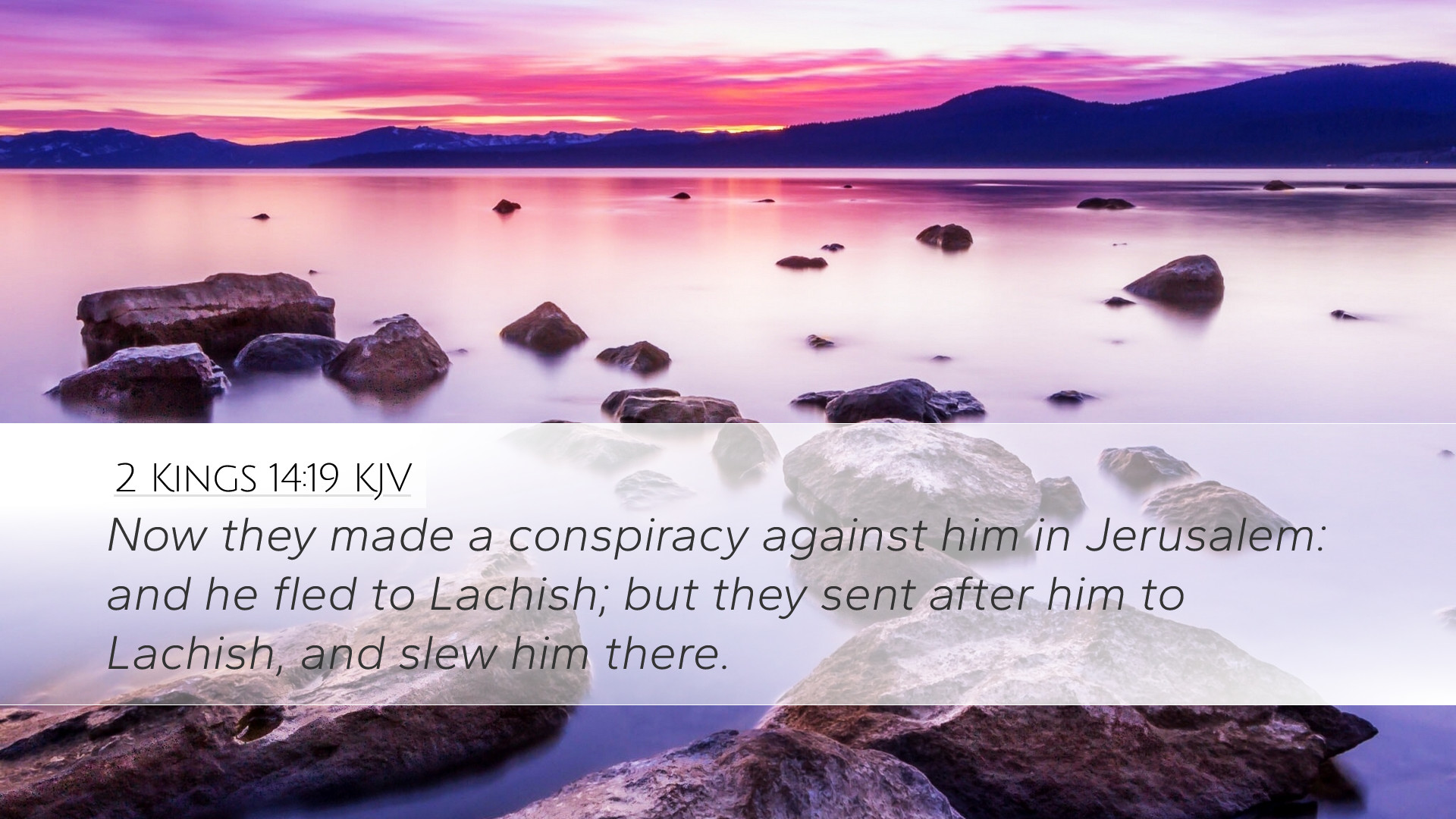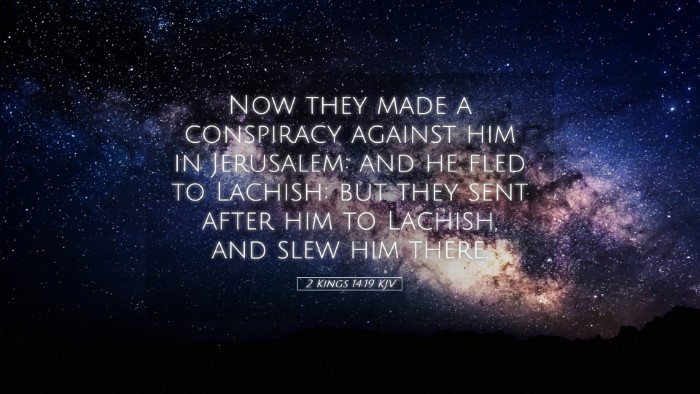Old Testament
Genesis Exodus Leviticus Numbers Deuteronomy Joshua Judges Ruth 1 Samuel 2 Samuel 1 Kings 2 Kings 1 Chronicles 2 Chronicles Ezra Nehemiah Esther Job Psalms Proverbs Ecclesiastes Song of Solomon Isaiah Jeremiah Lamentations Ezekiel Daniel Hosea Joel Amos Obadiah Jonah Micah Nahum Habakkuk Zephaniah Haggai Zechariah MalachiVerse
2 Kings 14:1 2 Kings 14:2 2 Kings 14:3 2 Kings 14:4 2 Kings 14:5 2 Kings 14:6 2 Kings 14:7 2 Kings 14:8 2 Kings 14:9 2 Kings 14:10 2 Kings 14:11 2 Kings 14:12 2 Kings 14:13 2 Kings 14:14 2 Kings 14:15 2 Kings 14:16 2 Kings 14:17 2 Kings 14:18 2 Kings 14:19 2 Kings 14:20 2 Kings 14:21 2 Kings 14:22 2 Kings 14:23 2 Kings 14:24 2 Kings 14:25 2 Kings 14:26 2 Kings 14:27 2 Kings 14:28 2 Kings 14:29

